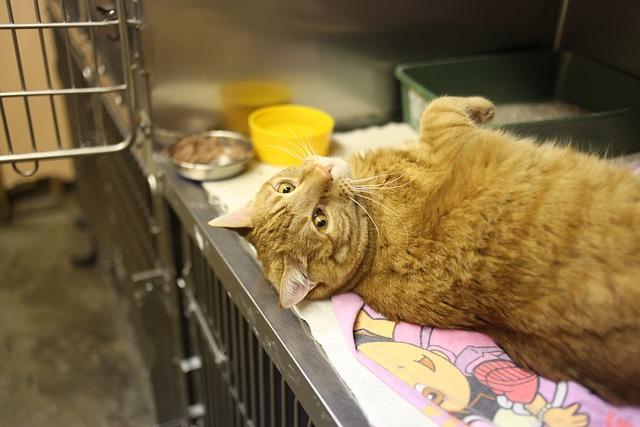In the heart of every pet owner’s home lies a cherished companion—be it a playful pup, a curious cat, or a gentle guinea pig. These beloved creatures, with their wagging tails and soft purrs, become family. Yet, as with any family member, concerns for their health are paramount. As chronic conditions“>veterinary medicine advances, so does the array of treatments available, offering hope and healing. But amidst this abundance, a question quietly surfaces: ? Join us as we explore this delicate balance between care and caution, unraveling the complexities of modern pet healthcare with warmth and curiosity.
Exploring the Prescription Puzzle: A Deep Dive into Veterinary Practices
In the world of veterinary medicine, the question of whether our furry friends are receiving too many medications for routine ailments is gaining traction. Pet parents are increasingly curious about the necessity of each prescription, and rightfully so. Are antibiotics being handed out like treats? Is every itch and sneeze met with a pill? Understanding these concerns requires a closer look at the practices within veterinary clinics.
Several factors contribute to this phenomenon, including:
- Time Constraints: Veterinarians often face tight schedules, leading to quicker diagnoses and treatment plans.
- Owner Expectations: Many pet owners expect a prescription to leave the clinic satisfied, equating medicine with care.
- Preventative Measures: Prescribing medication as a precaution can sometimes overshadow a more conservative approach.
Open dialogue between vets and pet owners is crucial. By fostering transparent communication, we can ensure that our beloved companions receive the care they truly need, without unnecessary interventions.

Understanding the Impact: How Medication Affects Our Furry Friends
When our pets face health challenges, medication can be a lifeline, but understanding its impact is crucial. Animals metabolize drugs differently than humans, and factors such as age, size, and species can influence the effectiveness and side effects of treatments. While medications can alleviate symptoms and cure illnesses, they can also lead to unintended consequences if not prescribed thoughtfully.
- Side Effects: Just like in humans, medications can cause adverse reactions. It’s essential to monitor your pet for any changes in behavior or health.
- Long-term Use: Some drugs, when used over extended periods, may lead to complications such as organ damage or dependency.
- Alternative Options: Exploring holistic or natural remedies may provide relief without the potential risks associated with pharmaceuticals.
Veterinarians play a critical role in ensuring that medications are used responsibly, balancing the benefits with potential risks. It’s always a good idea to discuss any concerns with your vet and explore all available options for your furry friend’s health and well-being.
Striking the Right Balance: When to Opt for Alternative Treatments
Finding the right approach for your pet’s health can sometimes feel like a delicate dance. While traditional medications are essential tools in a veterinarian’s kit, there’s a growing interest in exploring alternative treatments. These options can offer a more holistic approach to wellness, focusing on the overall well-being of your furry friend. So, when should you consider these alternatives?
- Chronic Conditions: For issues like arthritis or anxiety, therapies such as acupuncture or herbal remedies might provide relief without the side effects of long-term medication.
- Minor Ailments: Skin irritations or mild digestive problems can often be managed with dietary changes or natural supplements.
- Preventative Care: Techniques like massage or aromatherapy can support your pet’s immune system and overall health.
It’s crucial to consult with a veterinarian familiar with both traditional and alternative methods to ensure your pet receives a balanced and effective treatment plan. Embracing a blend of therapies might just be the key to unlocking a healthier, happier life for your beloved companion.

Empowering Pet Owners: Making Informed Decisions for Pet Health
In the quest for our furry companions’ well-being, it’s essential to understand the delicate balance between treatment and over-medication. Pet owners today are more empowered than ever to ask questions and seek alternatives when it comes to their pets’ health. Understanding the underlying causes of symptoms rather than immediately reaching for a prescription can often lead to more sustainable and healthier outcomes.
- Holistic Approaches: Consider exploring dietary changes, supplements, and lifestyle adjustments that can naturally support your pet’s health.
- Second Opinions: Don’t hesitate to consult with multiple veterinarians to gather diverse perspectives on your pet’s condition.
- Research and Resources: Leverage online resources, pet health forums, and educational materials to stay informed about potential side effects and alternative therapies.
By actively participating in the decision-making process, you can ensure that your pet receives the most appropriate care tailored to their unique needs. It’s about partnership and dialogue, where your voice as a pet owner plays a crucial role in their health journey.


































